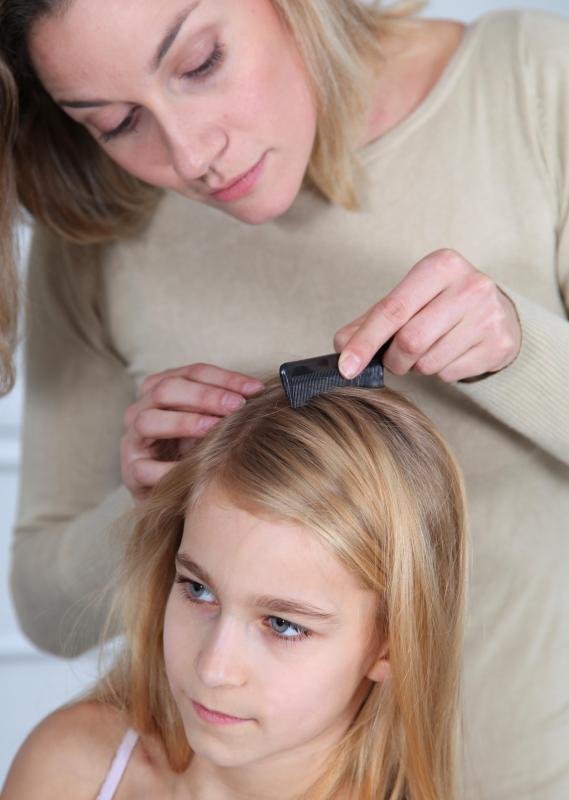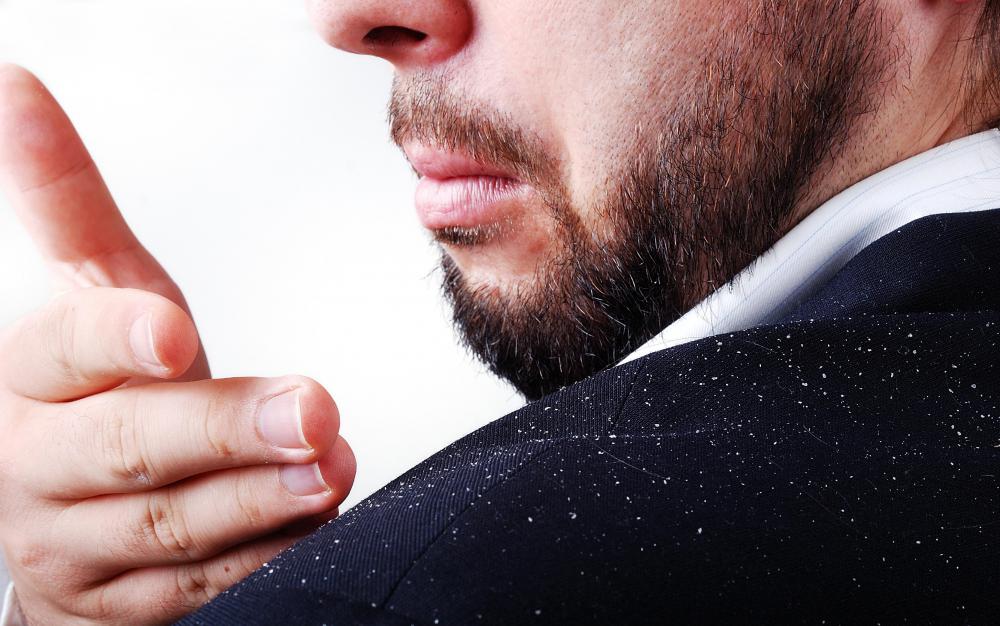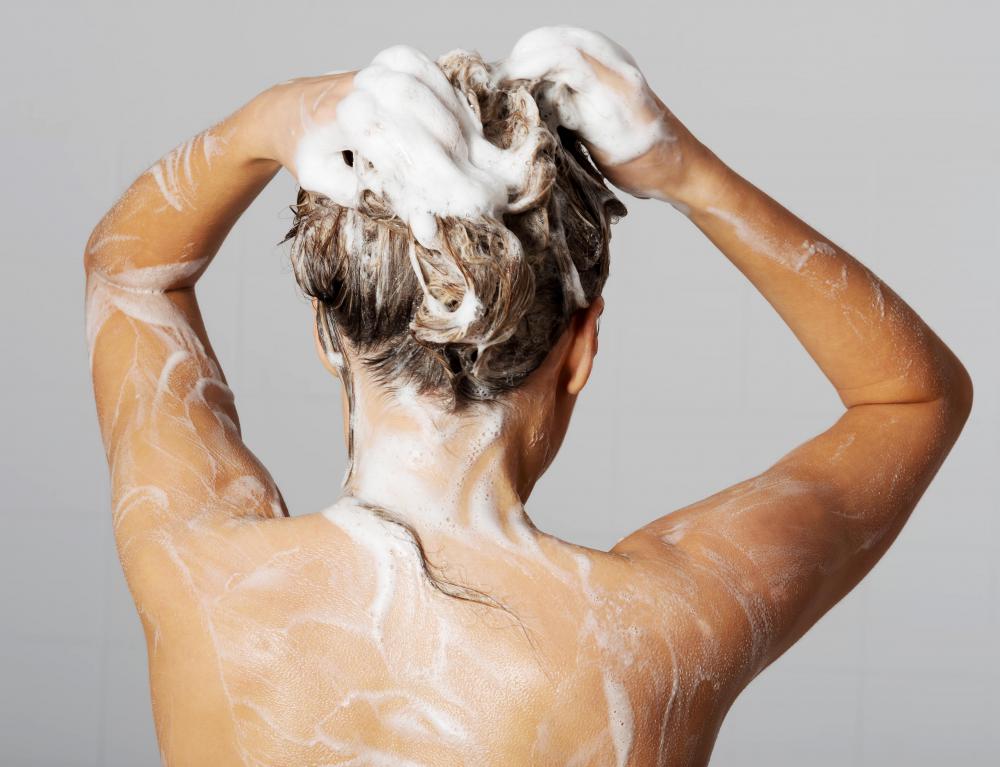At TheHealthBoard, we're committed to delivering accurate, trustworthy information. Our expert-authored content is rigorously fact-checked and sourced from credible authorities. Discover how we uphold the highest standards in providing you with reliable knowledge.
What are the Different Types of Scalp Treatment?
There are many different types of scalp treatment. Each scalp treatment is used to relieve symptoms of scalp irritation and disorders. These symptoms include dry scalp, itchy scalp, and scaly scalp. A few examples of scalp treatment include adjusting scalp hygiene, antihistamine and antifungal ointments, and prescription medication.
Dry scalp is very common. It can be caused by weather, allergies, or a scalp disorder. There are many kinds of scalp treatment available to moisturize a dry scalp. Tea tree oil, urea, and shea butter are used in a variety of scalp care products like shampoos and ointments. Tea tree oil has been used for many years to help restore and heal scalp infections and disorders. Urea moisturizes skin cells and relieves the tight, itchy sensations. Finally, shea butter restores moisture and helps capillary circulation as well as cell regeneration.

Itchy scalp is most often caused by poor scalp hygiene. Changing shampoo or adjusting frequency of hair washing is sometimes sufficient to cure itchy scalp. Medicated shampoos may be prescribed if the condition is persistent. Head lice is another common cause of itchy scalp. If head lice is present, medicated hair lotions and shampoos can get rid of the pests. Antifungal treatments in the form of an ointment or shampoo can eliminate symptoms if fungus is present.

Scaly scalp occurs when skin cells on the scalp die at a higher than normal rate and develop into scaly clusters. Scaly scalp treatment varies depending on the underlying cause. Some scalp treatments for this condition may include oral or topical antibiotics and antifungal or dandruff shampoos available over the counter or by prescription when necessary. Common conditions associated with scaly scalp are dandruff, psoriasis, and eczema.

Scalp psoriasis is caused by an over-active immune system response resulting in excessive cell regeneration on the surface of the skin. Medicated shampoos with 3 percent salicylic acid are available over the counter or by prescription for scalp treatment. Scalp treatment can help minimize the symptoms and outbreaks of scalp psoriasis, but it is very rarely completely cured once present. Ointments with coal tar, which can break down and help heal the scalp sores, are also available to treat this condition.

Scalp eczema can be treated by keeping the skin hydrated using ointments with low water and high oil content. Corticosteroid creams and oral antihistamines may be prescribed to relieve inflammatory reaction. Two topical treatments, called tacrolimus and pimecrolimus, have been approved by the U.S. FDA to treat eczema, although they have been associated with causing cancer in animals. These treatments weaken the immune system and should not be used by people with compromised immune systems.

Other than regular acne that happens to be on the scalp, the most common type of scalp acne is called folliculitis. Folliculitis occurs when staph bacteria, yeast, or mites infect a pore or hair follicle. Scalp acne treatment involves washing hair often and thoroughly to prevent grease and oil buildup. Shampoos with 2.5 percent selenium sulfide, 1 percent selenium, or 50 percent propylene glycol have been known to reduce scalp acne Severe cases may require prescribed antifungal or antibacterial medicine.
AS FEATURED ON:
AS FEATURED ON:


















Discussion Comments
Those who have dry, itchy scalp and even dandruff must try an oil massage. It's very simple. I use coconut oil which I massage into my scalp and hair once or twice a week. I leave it on for a few hours. This is easy to do while doing house chores or watching TV. Then I rinse and wash my hair as usual.
Coconut oil is very hydrating and it also has anti-bacterial and anti-inflammatory properties. It relieves dryness and itching. It also helps my hair grow because my hair is stronger. I love it.
@ysmina-- Have you seen a doctor? You might have a scalp infection. For example, a fungal infection can cause an excessively oily and itchy scalp despite frequent showers. An anti-fungal shampoo may resolve the problem. It happened to me last year and anti-fungal shampoo worked.
It's best to see a doctor though because different scalp conditions can have similar symptoms. And using the wrong treatment may make things worse. So it's best to see a professional about it.
How can I treat oily and itchy scalp? I already wash my scalp and hair daily, so I don't think that the problem is hygiene.
Post your comments